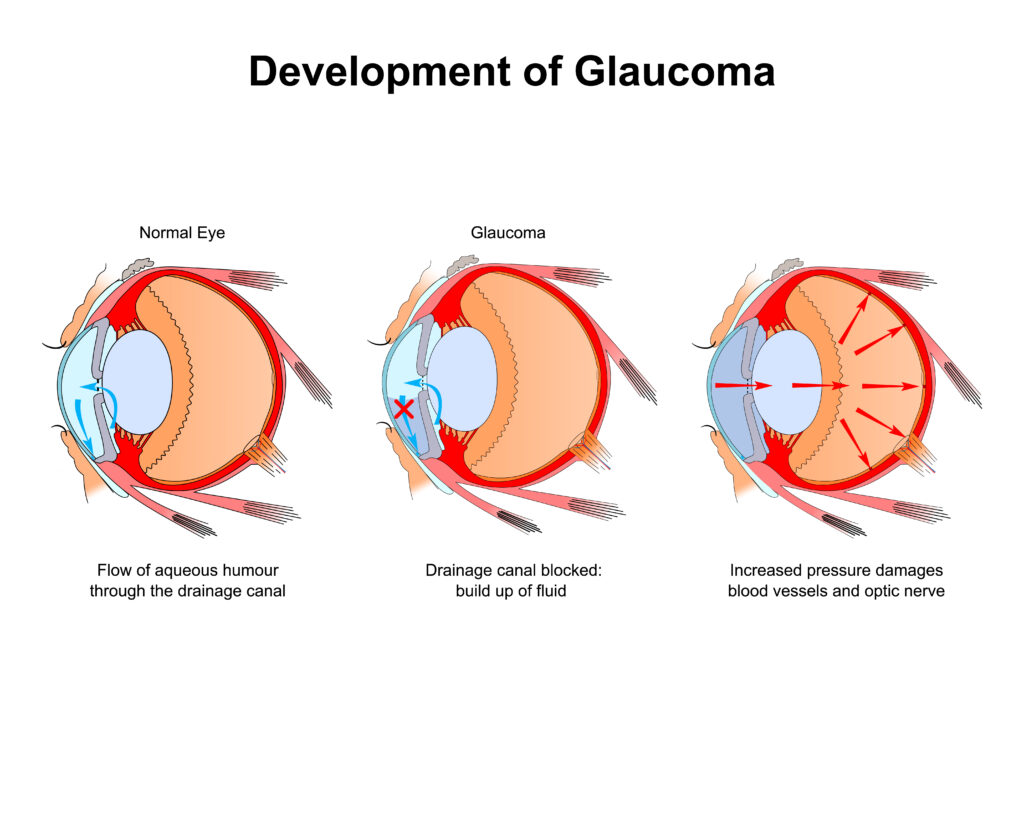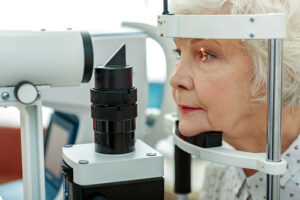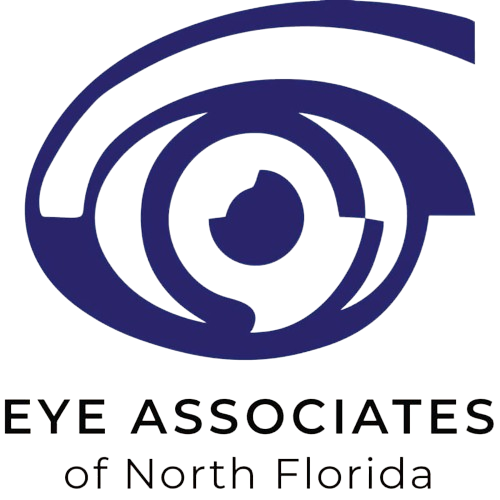Does Glaucoma Have Any Symptoms?

With the ability to permanently affect your vision, glaucoma is a serious eye condition that you should be aware of. One of the most important things to know is that symptoms develop gradually.
Because of this, many individuals are not aware they have this condition until irreversible damage has occurred. Keep reading to learn more about the slow progression of glaucoma and how you can best maintain healthy vision.
What Is Glaucoma?
Glaucoma is an eye condition that damages your optic nerve. This nerve has more than one million fibers that carry information from the retina to the brain.
Damage is usually due to an abnormal buildup of pressure in the eye (or intraocular pressure). The front part of the eye contains a fluid called aqueous humor.

The aqueous humor should flow through the ocular drainage system. Pressure can mount when this system becomes blocked, or the eye produces excess fluid.
The exact cause of this improper flow is unknown. Several factors heighten your risk of developing glaucoma. These include:
- Increased eye pressure (called intraocular pressure, or IOP)
- Older age
- Being of African-American or Hispanic descent
- Having a family history of glaucoma
If you have glaucoma or think you may have it, you are not alone. About three million people have this condition in the United States.
It is most common in older adults, particularly after turning forty, but it can occur at any age.
There are three major types of glaucoma: open-angle, closed-angle (acute), and low-tension. The first two forms occur most frequently.
Open-angle glaucoma occurs when tiny tubes in the drainage network do not function properly. At the same time, the drainage area itself remains open.
Closed-angle glaucoma results from a sudden blockage of the drainage area, with pressure rising quickly. When the drainage location becomes blocked and pressures increases, it can create a medical emergency. If this is the case, it’s referred to as an acute angle-closure glaucoma attack.
With low-tension glaucoma, pressure remains within the normal range, but damage to the eyes still occurs. The exact cause is unknown.
Some experts believe it can result from increased optic nerve sensitivity or reduced blood supply. Having this happen may be due to an accumulation of fatty deposits in the arteries.
What Are the Symptoms of Glaucoma?
The first symptom that most individuals develop before they realize they have glaucoma is vision loss. In the early stages, there are often no symptoms or pain.
What’s most concerning about glaucoma is that most people with the condition don’t realize they have it until vision loss has already occurred. The irreversible eye condition goes undiagnosed and untreated until it worsens.
Due to its slow progression, vision loss is gradual. As a result, people with glaucoma are less likely to notice it initially.
The symptoms of open-angle glaucoma differ from those of the angle-closure variation. With open-angle glaucoma, a loss of peripheral vision occurs gradually in both eyes, with tunnel vision occurring in the advanced stages.
With angle-closure glaucoma, symptoms include:

- Severe eye pain
- Nausea and vomiting
- Sudden onset of visual disturbance (often in low light)
- Blurred vision
- Halos
- Eye reddening
If the optic nerve becomes significantly damaged, peripheral vision is affected first. Then, if it remains untreated, vision loss encroaches on the center, resulting in tunnel vision and eventual blindness.
Glaucoma is the second-leading cause of blindness around the world. Because it’s so prevalent, this is why preventative measures and routine eye exams are essential.
How Do You Treat Glaucoma?
In this case, as with many other eye conditions, the best treatment is early detection. Symptoms are often not noticed until the advanced stages.

At that point, irreversible damage may have already occurred. Regular eye exams are the best thing you can do to avoid long-term effects.
Even if you feel fine and that there has not been a change in your vision since your last exam, you should still get one regularly. You should get a comprehensive eye exam starting at age forty and every three to five years after that if you don’t have any glaucoma risk factors.
If you are at high risk for glaucoma, your eye doctor will likely recommend scheduling more frequent eye exams. After age sixty, you should see your eye doctor for a yearly screening.
Once you’re sixty and older, your risk of developing age-related eye conditions like glaucoma and cataracts increases significantly. Your best defense against these is regular eye exams.
Unfortunately, you cannot restore any vision you’ve lost due to glaucoma once permanent vision loss occurs. However, there are a few treatment options available if the presence of glaucoma is detected early enough. These include:
- iStent
- Prescription eye drops
- Argon Laser Trabeculoplasty (ALT)
- Selective Laser Trabeculoplasty (SLT)
- Tube shunt surgery

iStent is a minimally invasive procedure that implants a tiny stent in your eye. It lowers eye pressure by creating an opening in the trabecular meshwork. ALT and SLT are two laser surgeries that reduce intraocular pressure.
If other treatments aren’t likely to be successful, you may undergo tube shunt surgery. The procedure involves implanting a flexible drainage device to help eliminate fluid and lower your intraocular pressure levels.







